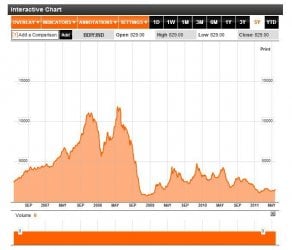konkon
Member
- Mar 4, 2011
- 145
- 7
- 16
- Thread starter
- #61
I can see Greece leaving the EU and setting-up its own currency in the future. I can also see them spending the loans big time and later saying "thanks, but no thanks". This marriage just didn't work-out for us. We're (Greece) are going back to the drachma and we will dust-off the printing precess and get back to controlling our own money (instead of going to the ECB for huge, unpayable loans). Greece won't change its ways. A restructuring of its debt obligations will make no difference in the long run. They'll just ramp-up the debts later on too.
Imagine Australia, for example, was part of a centralised Asian currency (had no control of the printing presses) and ran into a bit of (debt) trouble and had to go to a centralised Asian agency/bank for loans with (most likely) high interest rates.
Greece with a cheaper drachma will sell more ships, olive oil and have robust tourism.
It's kind of like a race to the bottom with certain currencies these days.
Imagine Australia, for example, was part of a centralised Asian currency (had no control of the printing presses) and ran into a bit of (debt) trouble and had to go to a centralised Asian agency/bank for loans with (most likely) high interest rates.
Greece with a cheaper drachma will sell more ships, olive oil and have robust tourism.
It's kind of like a race to the bottom with certain currencies these days.



